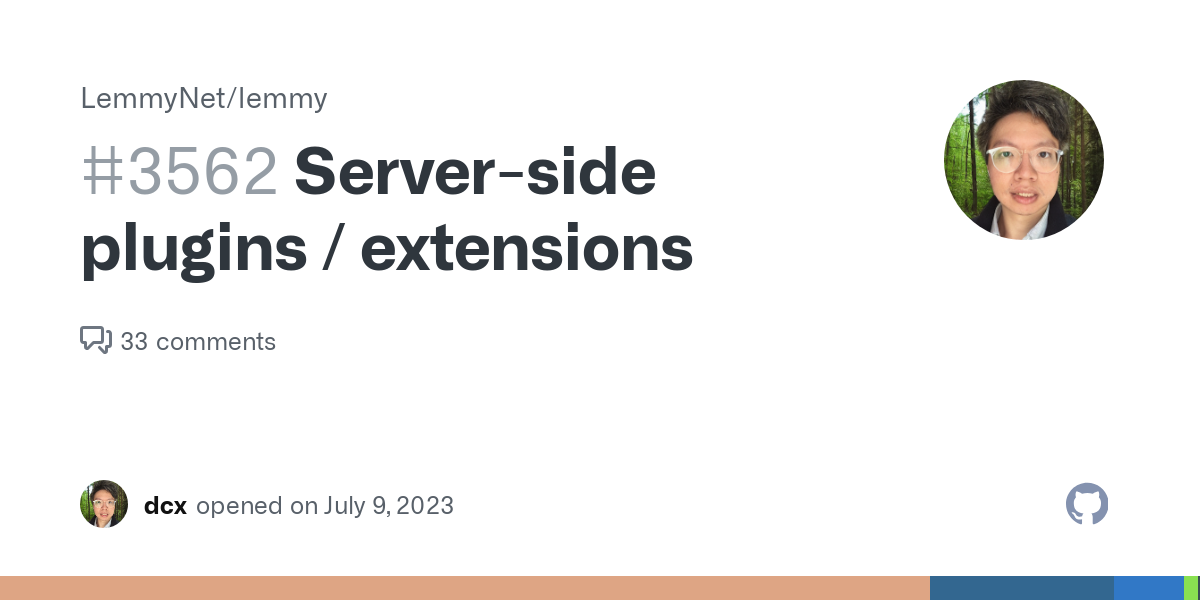- 2 Posts
- 6 Comments

 39·11 days ago
39·11 days agoI dont think its the software* but the instance that matters. Everyone being on lw is not good (not that there is anything wrong with lw, just that centralization is bad). Thankfully most lemmy apps nowadays default to lemm.ee which should hopefully counter most of the centralization. Lemmy apps should rotate the default server when it gets too big which will help a lot (also shows the impact defaults have).
*Software would have mattered if the main devs instance was also the biggest. Or a very popular lemmy client defaulted to their own instance. With lemmy thats not the case.

 13·12 days ago
13·12 days agoSubreddits were not a problem before since they were accessible on the web without needing an account. But now reddit is gradually locking them down behind authwalls and things like not letting search engines index (other than Google).
Lemmy communities dont have this problem and because lemmy is federated, its resistant to such enshittification (plus you can easily create your own lemmy instance for only your team). So imo they are a good alternative to forums (and reddit) and a good solution to this problem.

 2·12 days ago
2·12 days agoDiscourse already exists (and most big companies use that).
Also you can see many other things on Reddit or Discord too (or the internet). Im not sure how that is a point against federation. If companies really want to control everything they can create their own instance (like KDE’s lemmy instance).
They can defederate everyone from their instance to get an “unfederated” instance but again it changes nothing imo.
In fact defederation is a negative since now you have to worry about new signups, moderation, etc. While in a federated instance, you can leave moderation to other instances and only allow team/company members on your instance. Users can sign up on other instances and still be able to interact with your instance for support, help and other stuff.

 2·17 days ago
2·17 days agoYeah now I agree with you. I didnt understand the full impact the first time around.
(thanks for taking your time to actually explain it to all)

 81·17 days ago
81·17 days agoI might be in minority here but I kinda see the point the Readium guy is making, specifically this one:
We managed to convince publishers (even big US publishers) to adopt a solution that is flexible for readers and appreciated by public libraries and booksellers
Publishers and companies will always want DRM so at the very least we (as a community) could offer a DRM that is less flawed, more respecting of privacy and FOSS, etc. If we dont, someone else will offer a DRM solution thats far worse (and publishers will implement it because they dont care and there are no consequences).

I think piefeds combined view makes this less of an issue. Like people subscribe to/post in the big communities because they are more active so get more comments and stuff. But in piefed you get the combined discussion from all the communities so you get the same experience even if you are subscribed to a less popular community on that topic.